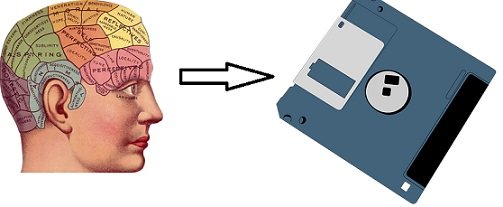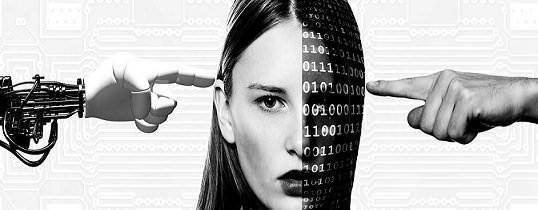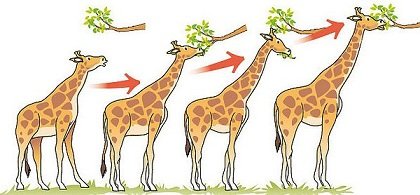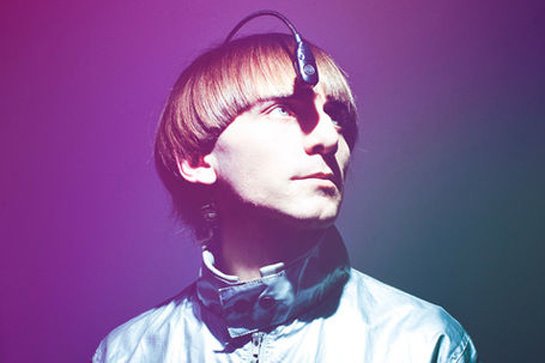We are humans, and we have left evolving the natural way. The forces from outside have altered the normal trend, and our evolutionary pathways have tilted towards an induced form of evolution - this is the force of technology. Now, a new age has been heralded in the evolution of human intelligence; this is the age of meta-intelligence.
INTRODUCTION
The human specie has been considered as a very intelligence specie. No wonder the "sapiens" suffixed the description of humans; which translates to "thinking man". And this has been seen in the ability of humans to almost conquer their immediate environment and the Mother Earth at large, and have shown supremacy over all the other creatures. Now, you may begin to wonder if this could be as a result of our intelligence and whatnot - yes, no doubt; but have we gotten to the apex of intelligence as the human species, or is any other intelligence arising later? Will evolution have effect on the intelligence of the human species? We'll be considering the "intelligent" part of human evolution in this post; and of course, how external forces (like the force of technology) has been seen to create obvious flaws in evolution. Length Alert: This post is lengthy, but if you can survive the length, you'll gain broader knowledge about evolution.
 [image Source: Pixabay (CC0 Licensed)]
[image Source: Pixabay (CC0 Licensed)] The concept of evolution we have been made to believe all these while is the aspect that deals with the theory of natural selection, and kudos to Charles Darwin for postulating this theory - and it presupposes that species do survive on the basis of their adaptability to their environment; of which the "best fitted" would survive and dominate. The truth is; Charles Darwin was relatively correct in his postulations, but not entirely though, This is because, the Darwinian model of evolution focuses more on the "natural" trend of evolution, without recourse to other factors that can mutilate the trend.
There are also proponents of the natural trend of evolution apart from Darwinism. Take for example; the theory of "use and disuse" postulated by Jean-Baptiste Larmack - which explains the fact that a body part that you use quite often tends to be consolidated upon (and it would become favoured) over the body part not frequently in use. And these consolidations made upon the favoured body part can be transferred to the subsequent generations - this led to the theory of "inheritance of acquired traits" proposed by Lamarck.
To explain this further is the case of the evolution of giraffe. Have you ever thought for once that the modern day giraffe; Giraffa camelopardalu; didn't evolve from an ancestral lineage of long-necked giraffes? Okay, this might interest you; the ancestors of the present day giraffe were short-necked; just like the ancestors of the modern humans weren't upright and bipedal. So what happed to the necks of the giraffe? One of the recognized ancestors of the modern day giraffe is Giraffokeryx - but on close observation of their fossils, they had short necks. But in the course of their evolution, there was a change in their feeding pattern, and the subsequent species needed to grab leaves from taller branches of trees, and by that, they had to be stretching their necks. The long term effect of this was that their necks started increasing in length, and these acquired traits were seen to be passed on to the next generations - in affirmation of the theory of "inheritance of acquired traits".
Likewise in the Ape-like hominid species we evolved from; there was a shift in the habitation of our ancestral grandpas (the Sahelanthropus) from arboreal to land-dwelling, they consolidated more on bipedalism, and their feet that were initially prehensile (to grab tree branches) started becoming rigid. But considering all these trends, they are still in relation to the natural process of evolution, of which they majorly hinge on the Darwinian model. But we; the human species; were able to adapt to our environment because of the abilities of our body to be conformed to changes within our environment - this ability is what is known as "plasticity".
EVOLUTION AND PLASTICITY
Like I mentioned above, our bodies were able to adapt to changes in our environment because of our plasticity. In this context, the kind of plasticity that has to do with only our physical body and how they respond (in behaviour, structurally, and physiologically) to changes is known as "phenotypic plasticity". And this kind of changes is almost entirely permanent. But the kind that requires the mental abilities of humans in response to changes is known as "neuroplasticity".

Image from Pixabay Edited by me:@samminator
Just like what is happening in our contemporary times; due to the advent of new and sophisticated technology and memory devices, there is now less emphasis laid on the utilization of our brains for storing up stuffs, and of course, our brains would get adapted to not storing much stuff in it. And you know, the theory of "use and disuse' would set in... no wonder it has been discovered that the Homo sapiens neanderthalensis (Neanderthals), which were the cousins of the Homo sapiens sapiens (modern man) had a slightly larger brain than ours [ref].
That means; technology would have to be queried for this. And the natural flow of the evolutionary processes has been affected by technology. Even in this report, Dr Ray Kurzweil made an exposition that technology has increased the rate of evolution. But this story is relatively not new to me.
Taking a little time travel back to the era of the Homo habilis; which was the recognized specie to have the ability of tool manipulation and creation. And because of their usage of tools, this caused their hands to be totally freed from supporting locomotion (as seen in the earlier species) and shifted to the handling of tools. It is not surprising that the next species to evolve from them became upright; that's the Homo erectus. That means; the usage of tools (which can be called technology) had an effect on the evolutionary processes of "uprightness". Is this still called natural selection or technological selection?
If this is the case, then I might be piqued to ask; did an absolutely natural trend of evolution ever occur? I mean, the evolution devoid of any external forces. Now this has been kept in the grey zone. And if these external forces affect how species survive, then it should be worthwhile to note that the "survival of the best fitted" does not equate to "natural selection".
FAREWELL TO NATURAL SELECTION
From the recent past to the present times, we have seen advances in genetics, hybridoma technology, artificial intelligence, human-machine interface, epigenetics, alpha-genetics et al, and the purpose of these is to enhance our bodies, which invariably alters our adaptation - so much so that we can virtually create the kind of humans we need to see. Like the example I once gave about the possibility of editing the gene of an embryo right in the uterus before they are born; I hope you know what that means? We are getting closer to a point where we can selectively breed our desired species - with an enhanced ability, and maybe eliminating the inherent weakness in humans.

This is where meta-intelligence comes into play. No wonder it was inferred that technology is the next phase of the evolution of humans. But which technology are we hoping to see in the future that will ultimately sideline the natural trend of evolution? Probably in high school, you might have been taught that the human body is composed of trillions of cells working together in a network to form "you". But have you thought of the fact that the human race can also be made to work together to form a single intelligent platform?
There has been a prediction that humans would merge with machines, or at least, have a symbiotic relationship with machines in the not-so-distant future. But the truth is; this trend has already begun. From the moment man moved with the idea to create augments (like the prosthetics and all), the era of human-machine merger was initiated. And we've seen the rise of human augments; which have been given a fancy name "Cybernetic Organism" (Cyborg).
Maybe the story of Neil Harbisson would give you a little insight. He was born without the ability to discern some colours (he was colour blind), but technology has got his back - he opted to undergo a surgical procedure to implant an antenna right into his brain [ref]. This antenna would sense the colours, and would translate them directly to the brain for interpretation. So instead of seeing the colours with his eyes, he senses them with his antenna. Awesomely enough, the antenna works wirelessly. So you see, with technology, he was able to chart a new course of adaptation for this colour blindness.
To say that humans are creating a stronger bond and relationship with machines is to say the least, and as the day passes, the line separating biology and technology keeps getting thinner. No wonder humans are seen to evolve alongside their devices. But the question here is; will this evolution favour biology or technology in the long run? If you've taken time to consider the trend of evolution, then you'll be able to answer this question. And like I mentioned earlier, the introduction of new technology at any point in evolution led to a drastic adaptation in the human species; just like the introduction of tools had a part to play in the evolution of uprightness. So as we're experiencing advances in technology, we should also expect to see more flaws created in our evolutionary pathway. And at the end, we will understand that evolution is not always dependent on "nature", but other factors have roles to play.
FINAL WORDS
Evolution has always been viewed as the series of adaptation that occur within the life of an organism in response to certain alterations in their environment. But we have been made to believe all these while that these evolutionary processes are purely natural, and the survival of species are based on the ones that are best fitted. But you've seen that there are other factors that can alter the rate of evolution, and can even initiate a specific kind of adaptation. We took a look at technology, and this; no doubt; has created more flaws in evolution. It could be a final farewell to natural selection.
Thanks for reading
References for further reading:
- technology speeds up evolution
- The evolution of humans
- Homo erectus; the uprigtness in man
- The origin of humans - sahelanthropus tchadensis
- The first humans
- Extinct hominid species
- humanorigins/evidences of human-fossils
- Hominid species and tool-making
- Neil Harbisson; the first cyborg - Nationalgeographic
- Neanderthals had bigger brain - why?
All images are CC Licensed and are linked to their sources.


gif by @foundation


Well, nature will strike back at some point. At least this is what I think!
Downvoting a post can decrease pending rewards and make it less visible. Common reasons:
Submit
Yes, nature would always strike back. But as long as we're humans, we'll figure out ways to suppress nature. Humans would always be humans, you know :)
Thanks for coming around sir
Downvoting a post can decrease pending rewards and make it less visible. Common reasons:
Submit
... until we will he hit too hard in the face ;)
Downvoting a post can decrease pending rewards and make it less visible. Common reasons:
Submit
I want to get something here @Samminator... Are we taking about meta humans and evolutions.. I don't think they should be related.
U can enlighten me more please
Downvoting a post can decrease pending rewards and make it less visible. Common reasons:
Submit
Lol. You're talking about metahumans (the fictional stories of mutants depicted by DC comics)?
Actually, I was referring to meta-intelligence: A form of higher intelligence that humans could evolve into - of course, with the help of external forces; like technology and whatnot. Remember when I said that humans would merge with machines; this could be one of the resultant effects of the merger.
Thanks for coming bro
Downvoting a post can decrease pending rewards and make it less visible. Common reasons:
Submit
I really don't like when scientist play God but time will tell.
I clearly get it now.. Thanks
Downvoting a post can decrease pending rewards and make it less visible. Common reasons:
Submit
Meta Intelligence sounds kind of fun Sam. What an interesting piece
Downvoting a post can decrease pending rewards and make it less visible. Common reasons:
Submit
Yeah it's fun bro. The whole evolutionary trend is pretty fun :).
Thanks man
Downvoting a post can decrease pending rewards and make it less visible. Common reasons:
Submit
This post has been voted on by the SteemSTEM curation team and voting trail in collaboration with @utopian-io and @curie.
If you appreciate the work we are doing then consider voting all three projects for witness by selecting stem.witness, utopian-io and curie!
For additional information please join us on the SteemSTEM discord and to get to know the rest of the community!
Downvoting a post can decrease pending rewards and make it less visible. Common reasons:
Submit
Downvoting a post can decrease pending rewards and make it less visible. Common reasons:
Submit
Hi @samminator!
Your post was upvoted by Utopian.io in cooperation with @steemstem - supporting knowledge, innovation and technological advancement on the Steem Blockchain.
Contribute to Open Source with utopian.io
Learn how to contribute on our website and join the new open source economy.
Want to chat? Join the Utopian Community on Discord https://discord.gg/h52nFrV
Downvoting a post can decrease pending rewards and make it less visible. Common reasons:
Submit
I have actually :) And I think that although there are single human organisms (individuals) who are extremely intelligent if we look into the behavior of the humankind as a whole, our decisions as a species and our moral calls resemble the thinking of a 2-year-old. And I don't talk about advances in technology but about moral: wars, food, and water distribution, poverty, etc :/
Have you watched "Idiocracy"? I think it is a genius glimpse into the future!
Intelligence grows when it is stimulated from the environment. Unfortunately, the technology substitutes the need for being intelligent. Even if you have the greatest genes, if they are not stimulated by the environment, they will never appear. So, is the intelligence gene selection going to work if we use machines to think instead of us?
A great provocative article, @samminator. As always!
Downvoting a post can decrease pending rewards and make it less visible. Common reasons:
Submit
Thanks a lot for the insightful comment as usual.
I think I might look for the movie you recommended. It sounds like my kind of movie 😂😂
Downvoting a post can decrease pending rewards and make it less visible. Common reasons:
Submit
:D If you find it and watch it, please let me know what you think about it :D It is an odd, but a very funny movie :D
Downvoting a post can decrease pending rewards and make it less visible. Common reasons:
Submit
Ever since the first wooden leg was fashioned for the first pirate, people in a way have been merging with equipment of one kind or another. Having an antenna installed in the brain to see better sounds like a neat idea. Messing around with embryos and genetics, not so neat. However, I think perhaps there may be a role for natural selection, because the world is not as orderly as technology would lead us to believe.
For example, a highly virulent pathogen for which only a small percentage of the population have natural immunity--that would be one form of natural selection that would defy the orderly universe of technology. Or how about UV-induced melanomas? With increased UV in highly populated areas, might not natural selection weed out those with greater susceptibility to this cancer? Just two kind of off-the-wall ideas that popped into my head as I read through your piece.
I don't think natural selection is done with us yet. It might surprise us. Of course, by the time that happens, many of us may not be around to see it.
This was a fascinating blog, full of provocative suggestions. Got me thinking.
Downvoting a post can decrease pending rewards and make it less visible. Common reasons:
Submit
Except maybe we achieve a form of immortality. - maybe digital immorality.
Messing with embryos is just small compared to what's coming ahead. A time could come when humans would virtually be able to create the kind of humans they desire. It's actually hard to think this would still be called "evolution", maybe we'll just call it "manipulation" or better still "technovolution".
Thanks for coming around
Downvoting a post can decrease pending rewards and make it less visible. Common reasons:
Submit
You're welcome!
Downvoting a post can decrease pending rewards and make it less visible. Common reasons:
Submit